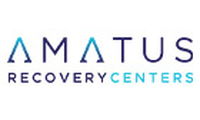Crystal Meth Rehab

Using crystal meth can have serious physical and mental health consequences, so it's important to take the signs of addiction seriously. Recovering from a crystal meth addiction is possible – and the first step is saying 'yes' to treatment for crystal meth addiction.
Crystal meth is a form of methamphetamine, a powerful synthetic stimulant. Crystal meth resembles broken glass and is either smoked or injected. It causes a short rush of euphoria, increased energy, loss of appetite, and rapid heart rate and breathing. It's common for users to binge on meth, followed by a "crash" of severe depression, fatigue and irritability. According to a 2012 survey, more than 12 million people had tried using methamphetamine at one point in their lives, with approximately 1.2 million regular users of the drug.
Crystal Meth Rehab Centers
If you or a loved one is ready to get help for meth addiction, then consider a crystal meth rehab center. Recovery from crystal meth will restore your physical and mental health and help build back relationships, a stable job and a life you'll be happy to live.
There isn’t a one-size-fits all approach to recovery from a substance use disorder, but there are common steps in recovering from a crystal meth addiction. Depending on how long you've been using, you might find an outpatient treatment center to be beneficial, while others will need detox and residential treatment services.
There are millions of people in recovery from substance use disorder today – 23 million people to be exact. So even if it seems like a long and lonely road to stay sober from crystal meth, know that you’re not alone.
Signs of Crystal Meth Addiction
There are many symptoms of crystal meth addiction, like memory loss, aggression, erratic behavior, heart problems, dental problems and low weight or malnutrition. If crystal meth use becomes habitual, it could signal an addiction. Here are crystal meth addiction signs:
- Needing to use more crystal meth to achieve the same high or desired effects.
- Noticing signs of withdrawal after stopping crystal meth use, or using crystal meth to relieve symptoms of withdrawal.
- Using more or using for a longer period of time than originally intended.
- Feeling a strong, persistent desire to use crystal meth – or having been unsuccessful when trying to cut back, control or quit.
- Spending time trying to obtain crystal meth or recover from using it.
- Giving up important social obligations, hobbies or work responsibilities because of crystal meth.
- Continuing to use crystal meth despite negative effects on physical or mental health.
Treating Crystal Meth Addiction
Treatment for meth users is available through detox, residential treatment and outpatient treatment services. Meth stays in the system longer than other stimulants like cocaine, so it can take longer to fully recover from an addiction to crystal meth.
The Meth Detox Process
Crystal meth detox is often the first step in the treatment journey. During the detox phase, most people will experience some form of withdrawal. Withdrawal can look different from person-to-person, depending on how much a person was using crystal meth. Typically, withdrawal from methamphetamine can last anywhere from 1 day to 3-4 weeks, with severity tapering off over time. Common symptoms of crystal meth withdrawal include:
- Appetite changes
- Irritability
- Paranoia and hallucinations
- Itchy skin and eyes
- Sluggish behavior
- Slurred speech
- Fatigue and sleep changes
- Depression and/or suicidal thoughts
Depending on the severity of a person's withdrawal, some people may be able to detox from crystal meth on an outpatient basis, either working with an outpatient treatment center or in a safe, sober home environment. For those who have been using meth longer, a medical detox facility could be beneficial.
the chance of relapse is much higher when experiencing withdrawal symptoms, so a medical detox facility will provide medical services for safety and have round-the-clock staff to provide emotional support.
While there are no medications approved to treat methamphetamine addiction, studies are being conducted to see if Naltrexone, a drug commonly used to help treat alcohol addiction, could be beneficial in treating meth addiction. Naltrexone could help meth users experience fewer or less severe cravings, which can help in relapse prevention. It's important to consult a treatment center or medical care provider if you are interested in using medications to help with crystal meth detox, treatment or recovery.
Residential Crystal Meth Rehab
An inpatient or residential treatment facility can be highly beneficial for those recovering from a crystal meth addiction. In residential treatment, people will typically participate in daily group therapy, individual counseling, and mental health appointments if needed.
Meth is a powerful stimulant. So taking the time out offered at a residential treatment center can be a great way to give the brain a chance to normalize. Treatment offerings like fitness classes, yoga or meditation groups can help you develop coping skills for long-term recovery.
Residential treatment programs can be short-term or long-term. Longer-term programs often providing better outcomes. Recovering from an addiction takes time, and the longer you can devote to your recovery, the better.
Outpatient Meth Rehab
Outpatient treatment for crystal meth and stimulant addiction often uses a method called the matrix model, which is known to be more effective than other outpatient treatment methods. The matrix model is an evidenced-based approach that provides support and structure, with typical programs spanning 16 weeks or more.
Clients are given an individualized treatment plan, work individually with a counselor and attend regular outpatient group therapy to discuss a variety of topics related to staying sober. The matrix model also includes regular urine testing and incorporates social support and family education into treatment. Many matrix model programs will also suggest or require twelve step group participation for additional sober support.
Meth Recovery Stages
Recovery from crystal meth takes time. After using meth for any length of time, your mind and body need time to return to normal – including developing coping skills, a healthy sleep schedule, good nutrition and physical activity. It won't happen overnight, and that's okay. Here's what to expect as you recover from crystal meth addiction:
Early recovery
Starting with withdrawal, the first month of recovery can feel the hardest. Your body is healing from the harmful effects of crystal meth, and sometimes this requires doing whatever it takes to keep going in recovery – sleeping regularly, exercising and eating nutritional foods can all help you in this phase of your journey.
After the withdrawal phase and entering into a treatment program, some people experience a "treatment high." You'll begin to notice the changes you're experiencing by staying sober, and that is a good feeling. But it's important to stay focused on doing the hard work of recovery – there are both good days and bad days ahead, and a consistent dedication to the process will keep you steadily moving forward.
Maintenance mode
From 6 months sober to 2 years sober is typically considered maintenance mode. Relapse potential decreases with every month you stay sober, but can still be a challenge in the first 2 years of recovery from crystal meth. During the first 2 years, you're completing treatment programs, navigating sober housing, and are getting your life back on track, whether that means a new career, repairing relationships with family members or finding a recovery routine that works for you.
Throughout this phase, your body and brain will keep repairing themselves from the harmful effects of crystal meth, and triggers and cravings will slowly diminish. However, relapse can still happen – especially if you get overconfident or stop staying vigilant in recovery. The most important thing in this phase is to truly maintain and protect the progress you've achieved in recovery and stick with it long-term.
Advanced recovery
People might also call this long-term recovery, but no matter what you call it, after 2 years sober the risk of relapse significantly decreases. You're most likely working a program of recovery from crystal meth that has been working for 2 years, likely with ebbs and flows, but with consistency and determination.
Because addiction is a chronic condition, it's important to remember that even as you stay sober for longer periods of time, commitment to recovery should last a lifetime. Long -term recovery can include a clear mind, a recovering body and a recovery program supported by mental health counselling, healthy hobbies, a community of sober peers and support group participation.
Recovery from crystal meth addiction requires a revamp in friends, surroundings, hobbies, and more. You might feel like everything in your life is being changed to incorporate your recovery, and in many ways, that can be true. But it's these changes that pave the way for new memories, new friendships and most of all, a sober lifestyle that supports your goals, beliefs and relationships.












